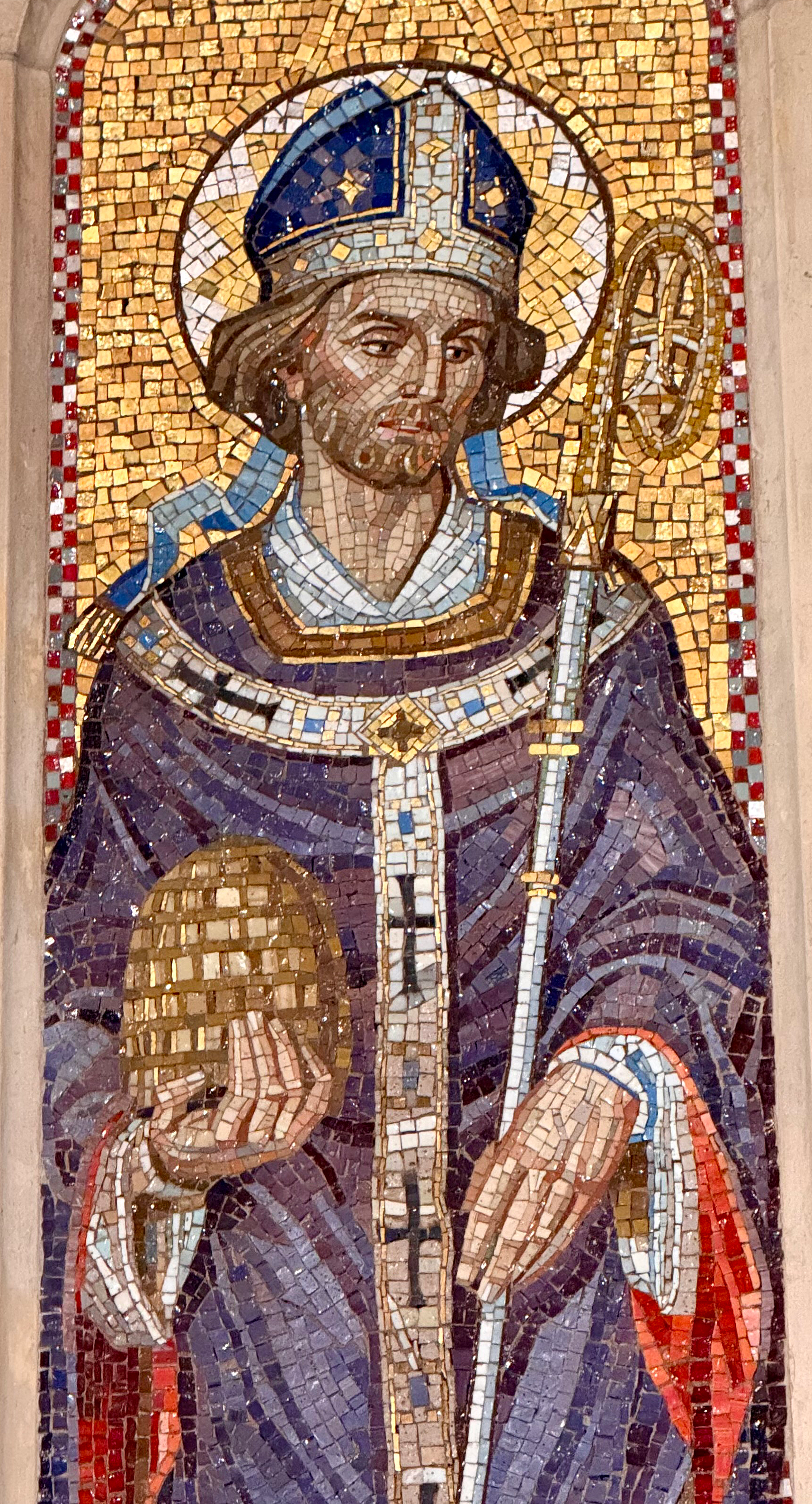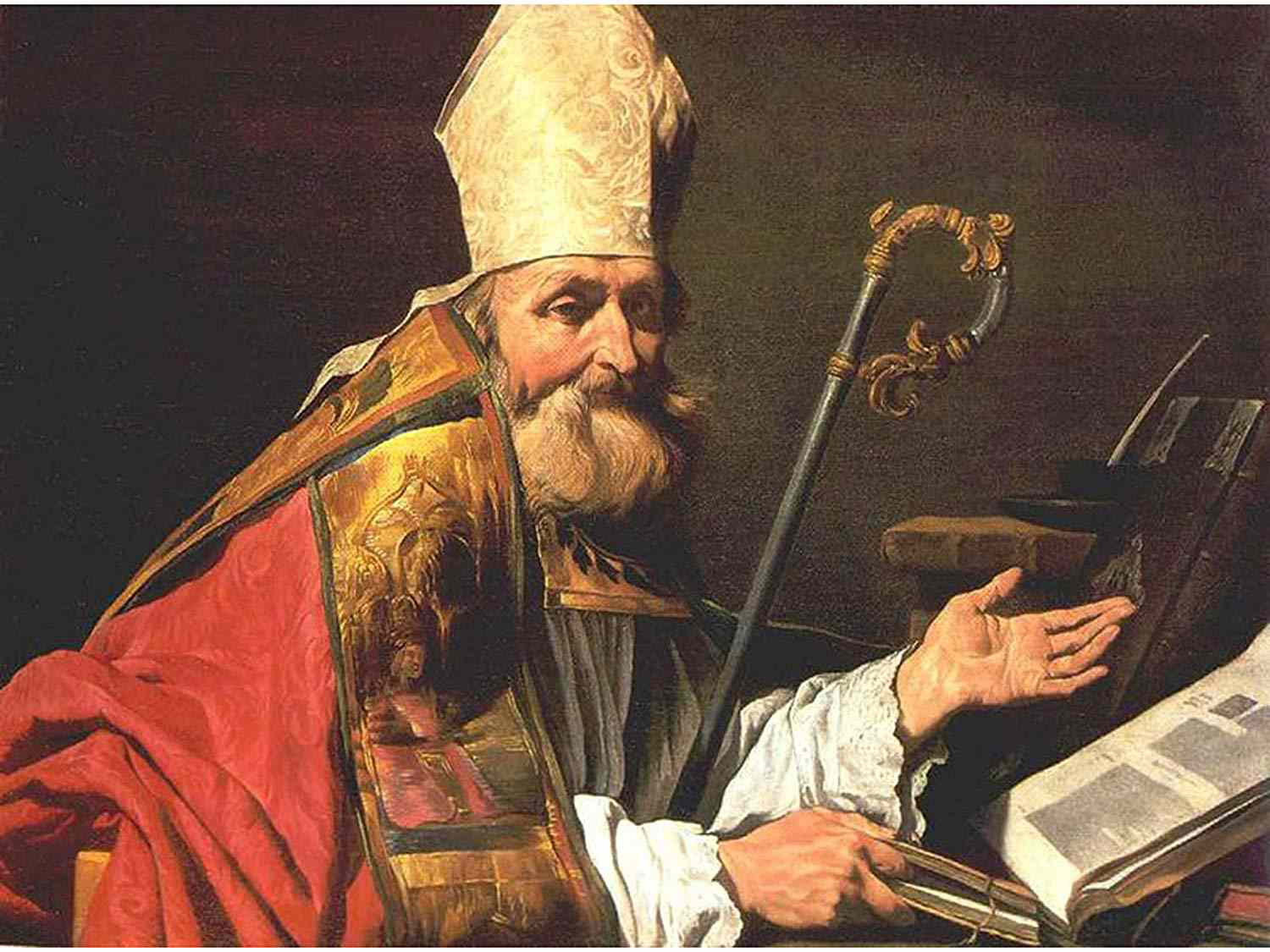Report on St. Ambrose
Introduction
St. Ambrose (c. 340–397 AD) was one of the most influential bishops and theologians of the early Christian Church. As the Bishop of Milan, he played a pivotal role in shaping Christian doctrine, especially during the period of the late Roman Empire when the Church was in the process of becoming more firmly established as a dominant religious institution. Ambrose was a key figure in the development of early Christian thought, the promotion of the authority of the Church, and the relationship between the Christian state and government. His legacy as a preacher, theologian, and a defender of the faith continues to have a profound impact on Christianity.
Early Life and Education
Ambrose was born around 340 AD in Trier (modern-day Germany) to a prominent Christian family of Roman nobility. His father was a prefect in the Roman Empire, and Ambrose himself was educated in the classics, studying law and rhetoric. He initially pursued a career in public administration and became the governor of the province of Aemilia-Liguria, which included Milan. Ambrose’s early life was secular, and his involvement in the Christian faith was initially more personal than public.
Conversion and Election as Bishop
Ambrose’s conversion to a more active Christian life occurred unexpectedly. In 374 AD, when the Bishop of Milan, Auxentius, died, a fierce debate broke out between the Arians (who held a controversial belief about the nature of Christ) and the Nicene Christians over who should be the new bishop. Ambrose, who was then a layman, intervened in the debates to calm the crowd. At this moment, a voice reportedly cried out that Ambrose should become the new bishop. Despite his lack of formal theological training, Ambrose accepted the position, choosing to undergo a rapid course of theological study and baptism.
Role as Bishop of Milan
Ambrose’s tenure as bishop of Milan was marked by his staunch defense of orthodox Christian teachings and his efforts to maintain the unity of the Church. He was an eloquent preacher and a prolific writer, and he became known for his strong stance against heresy, particularly Arianism, which denied the full divinity of Christ. Ambrose worked to strengthen Nicene orthodoxy and to ensure that the bishops remained independent from imperial influence, especially in the face of political pressure from the Emperor.
One of Ambrose’s most notable achievements as bishop was his role in influencing the Emperor Theodosius I. Ambrose famously confronted Theodosius after the emperor ordered a massacre of 7,000 people in Thessalonica in 390 AD as retaliation for the death of a Roman official. Ambrose demanded that the emperor do penance for his actions, and Theodosius was forced to publicly repent, illustrating the growing authority of the Church over secular rulers.
Theological Contributions
Ambrose made significant contributions to the development of Christian theology, especially in the areas of Christology, ecclesiology, and liturgy.
1.Christology: Ambrose was a strong advocate for the Nicene Creed, which affirmed the full divinity and humanity of Jesus Christ. He fought against Arianism and emphasized the importance of the Trinitarian doctrine, which maintains that God exists as three persons—Father, Son, and Holy Spirit—in one divine essence.
2.Ecclesiology: Ambrose argued for the independence of the Church from the secular state and emphasized the spiritual authority of the bishops over the emperor. His interaction with Theodosius highlighted his belief in the supremacy of the Church in moral and doctrinal matters.
3.Liturgy and Hymnody: Ambrose is often credited with shaping the liturgical practices of the Western Church. He introduced the practice of congregational singing and is believed to have composed several hymns, including the well-known “Te Deum.” His hymns and psalmody greatly influenced Christian worship, particularly in the Western Church.
Ambrose and the Conversion of Augustine
One of the most significant events of Ambrose’s life was his role in the conversion of St. Augustine of Hippo. Augustine, initially a member of the Manichean sect and later a skeptic, came to Milan seeking intellectual answers. He encountered Ambrose’s preaching and was struck by the bishop’s eloquent interpretation of Scripture, especially Ambrose’s allegorical approach to the Old Testament. Ambrose’s influence, combined with the prayers of his mother, Monica, led to Augustine’s conversion to Christianity in 386 AD. This event was pivotal in the history of Christian thought, as Augustine would go on to become one of the Church’s greatest theologians and philosophers.
Moral Leadership and Advocacy for the Poor
Ambrose was also known for his moral leadership and care for the poor. He was a vocal advocate for social justice, providing aid to the impoverished and advocating for the rights of the oppressed. He worked to ensure that the Christian faith was not just a matter of personal salvation but also involved a commitment to justice, mercy, and the care of the less fortunate. Ambrose’s moral authority extended beyond the Church, and he was regarded as a guide for both Christians and non-Christians in matters of ethics and morality.
Legacy
Ambrose’s legacy is profound and wide-reaching. He is considered one of the Four Doctors of the Latin Church, along with St. Jerome, St. Augustine, and St. Gregory the Great. His works have had a lasting influence on Christian theology, especially in the development of Church doctrine and liturgical practice.
Ambrose’s role in strengthening the power and independence of the Church from secular rulers, his contributions to Christian worship, and his impact on Christian thought, particularly through his influence on Augustine, make him a towering figure in the history of Christianity.
His writings, including his letters, sermons, and biblical commentaries, remain a source of theological and spiritual reflection. The Ambrosian Rite, a liturgical tradition of the Church that developed in Milan and is still practiced today, bears his name.
Conclusion
St. Ambrose stands out as one of the most important figures in the history of the early Church. His leadership as Bishop of Milan, his theological contributions, his role in the conversion of Augustine, and his advocacy for justice and care for the poor, all left a lasting mark on Christianity. His ability to balance pastoral care with doctrinal precision, as well as his influence on both church and state, earned him the respect of his contemporaries and ensures that his legacy endures. As a model of both Christian leadership and intellectual rigor, St. Ambrose remains an exemplar for Christians worldwide.






